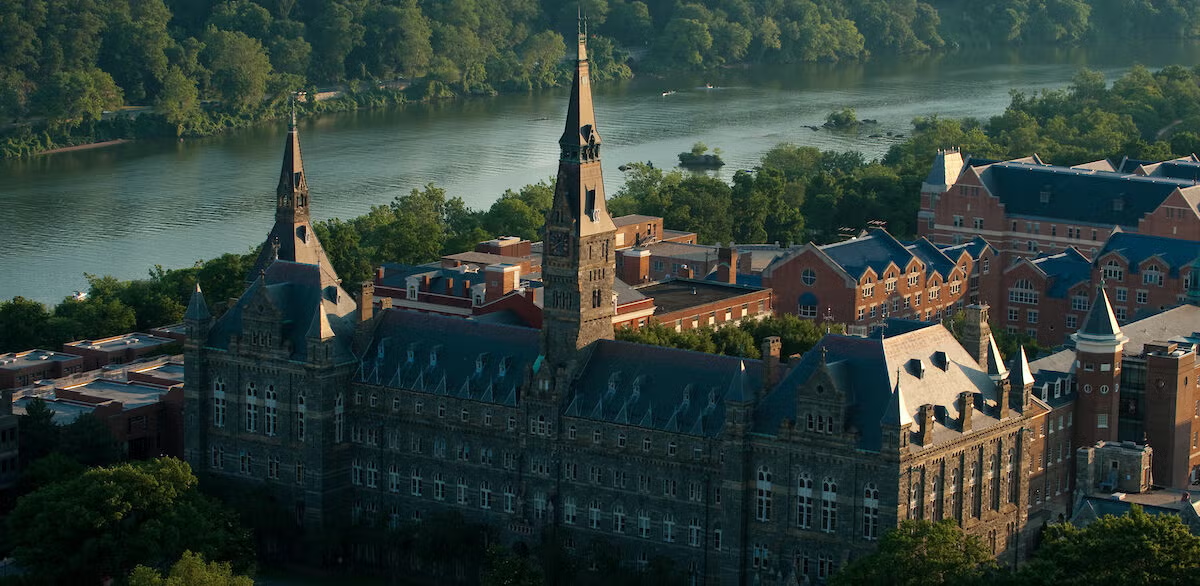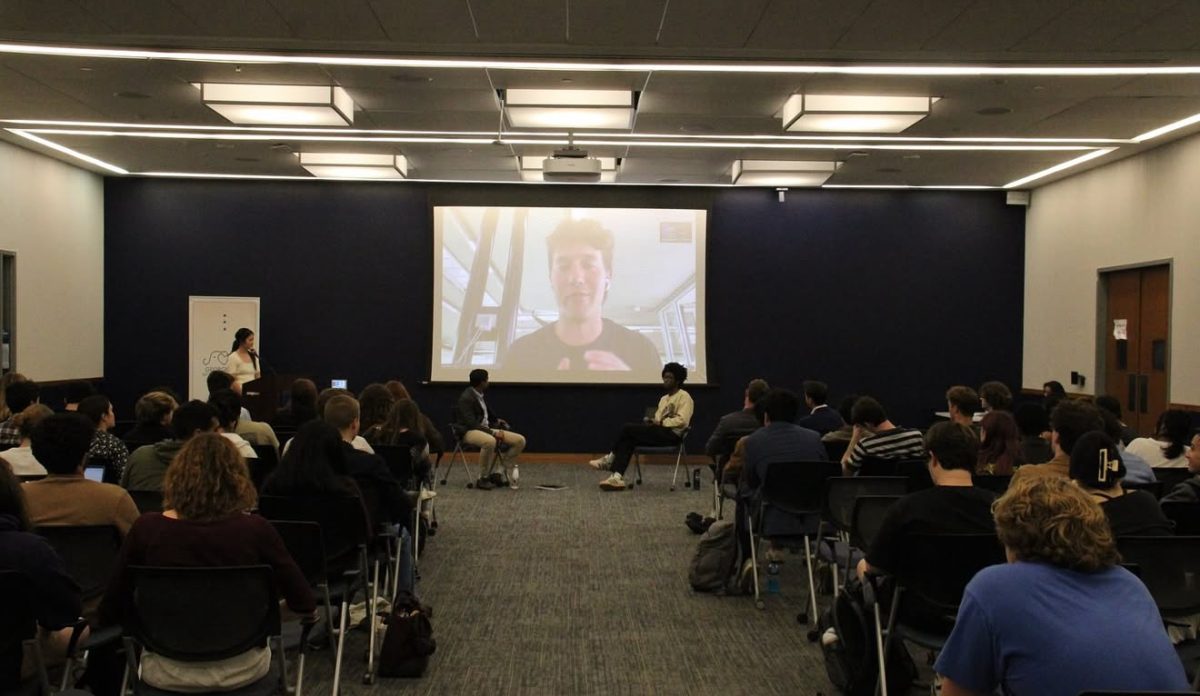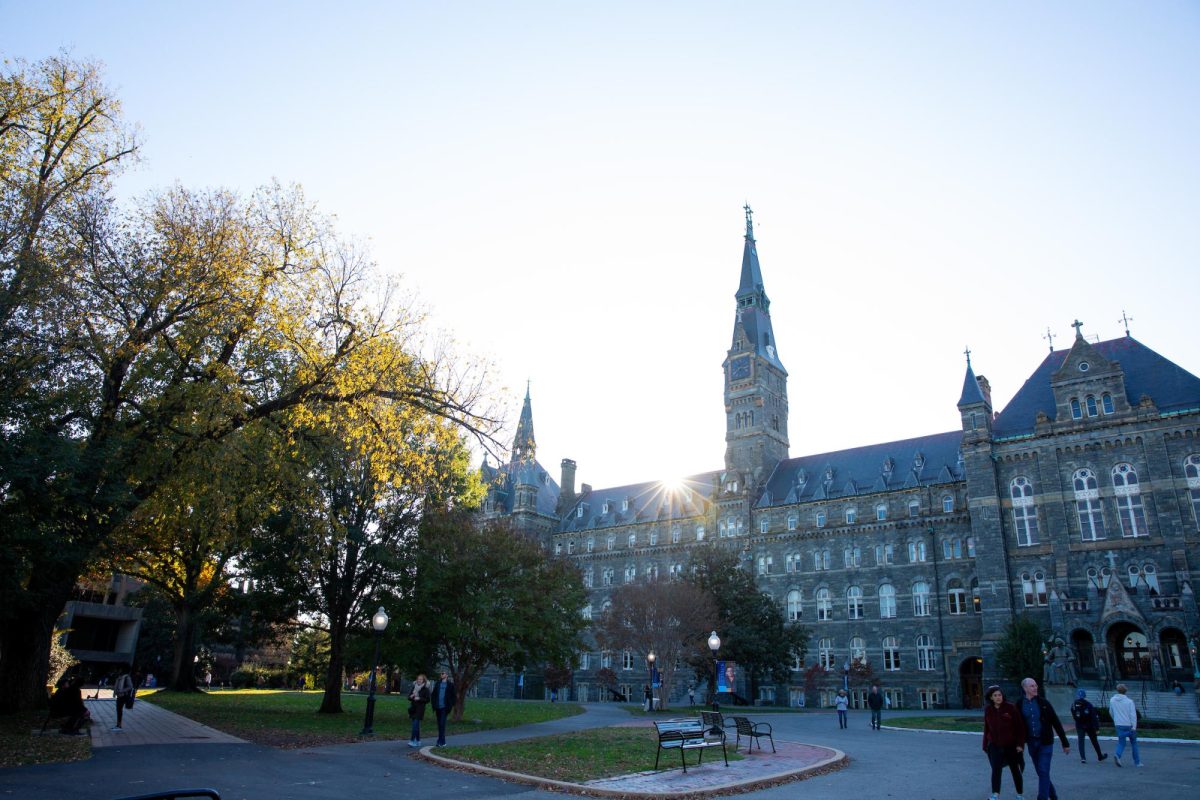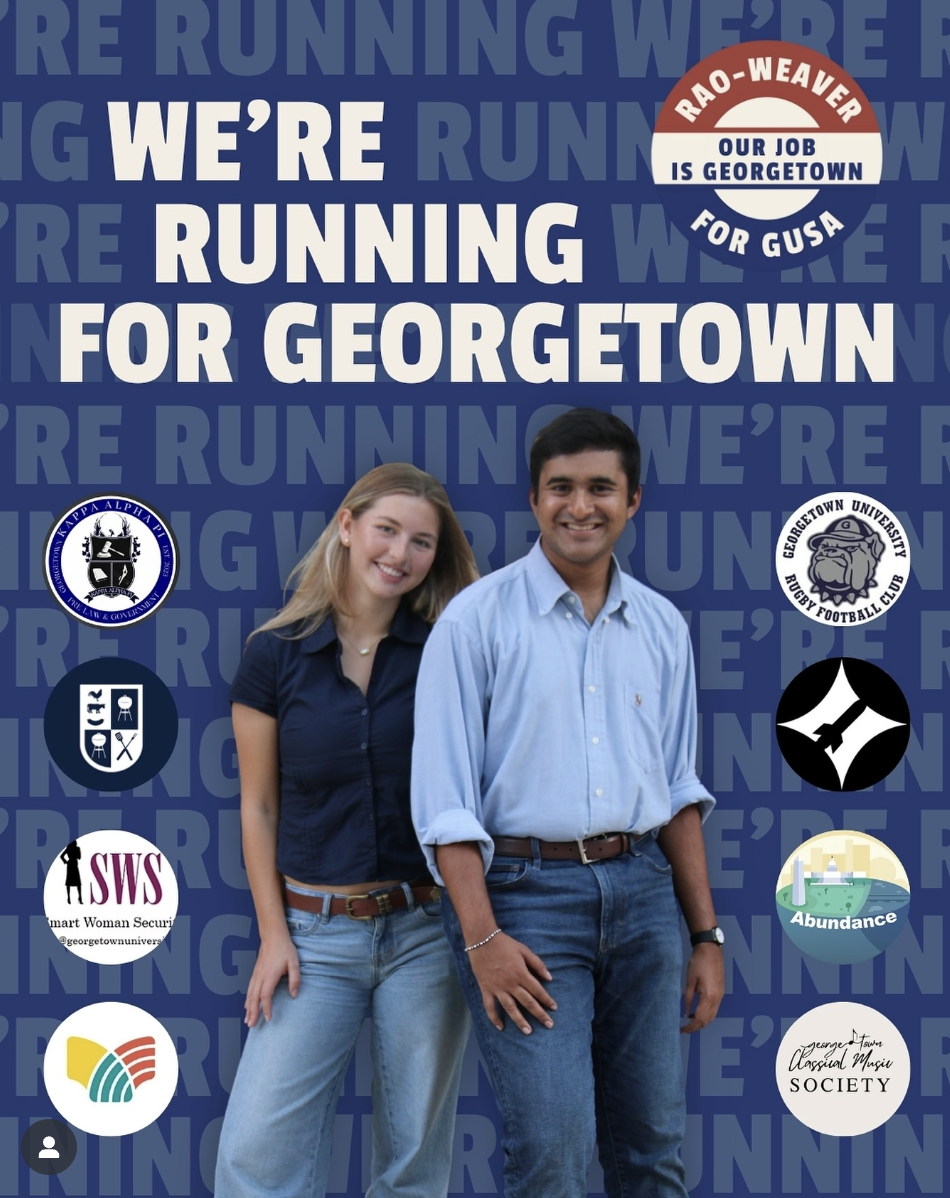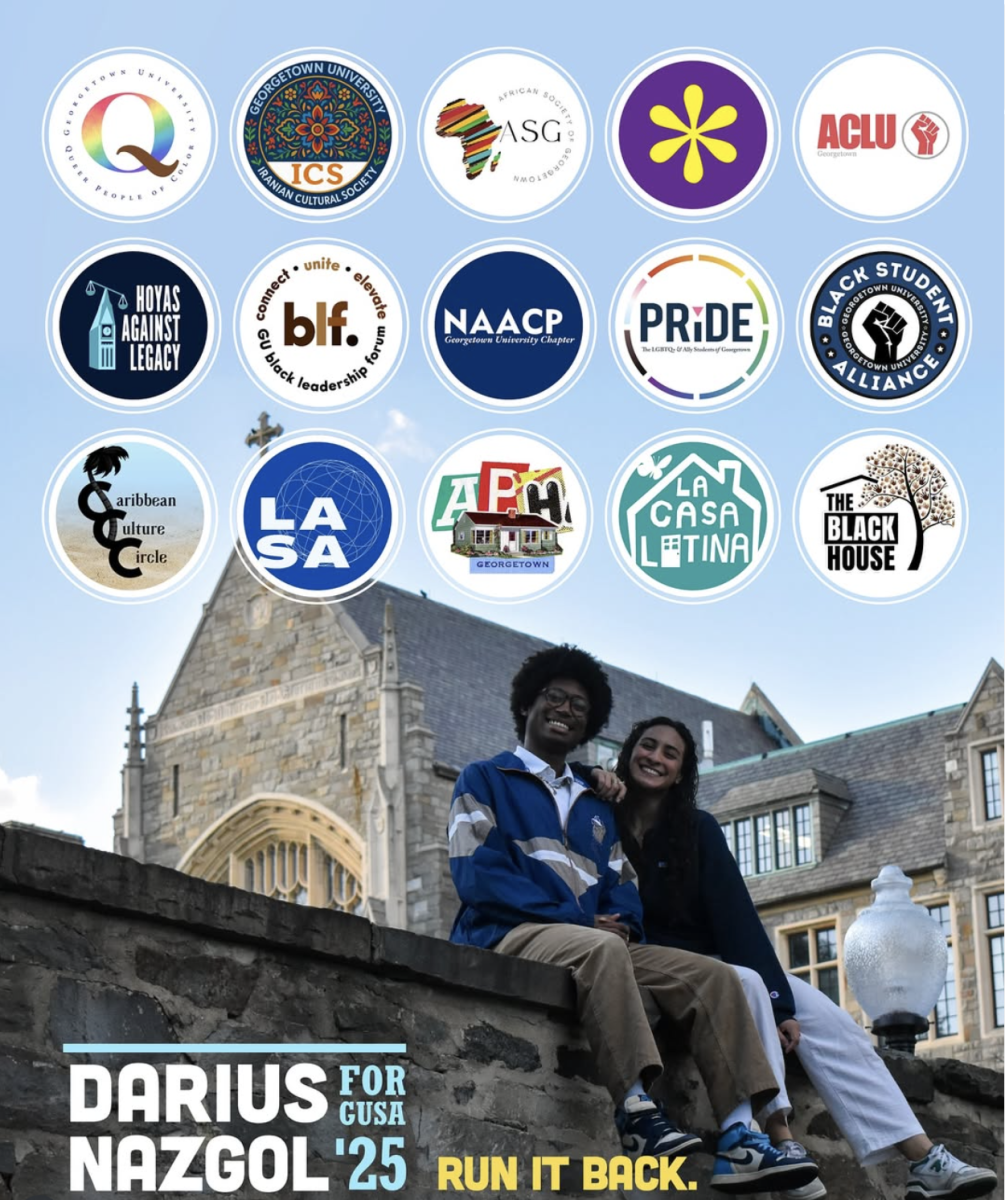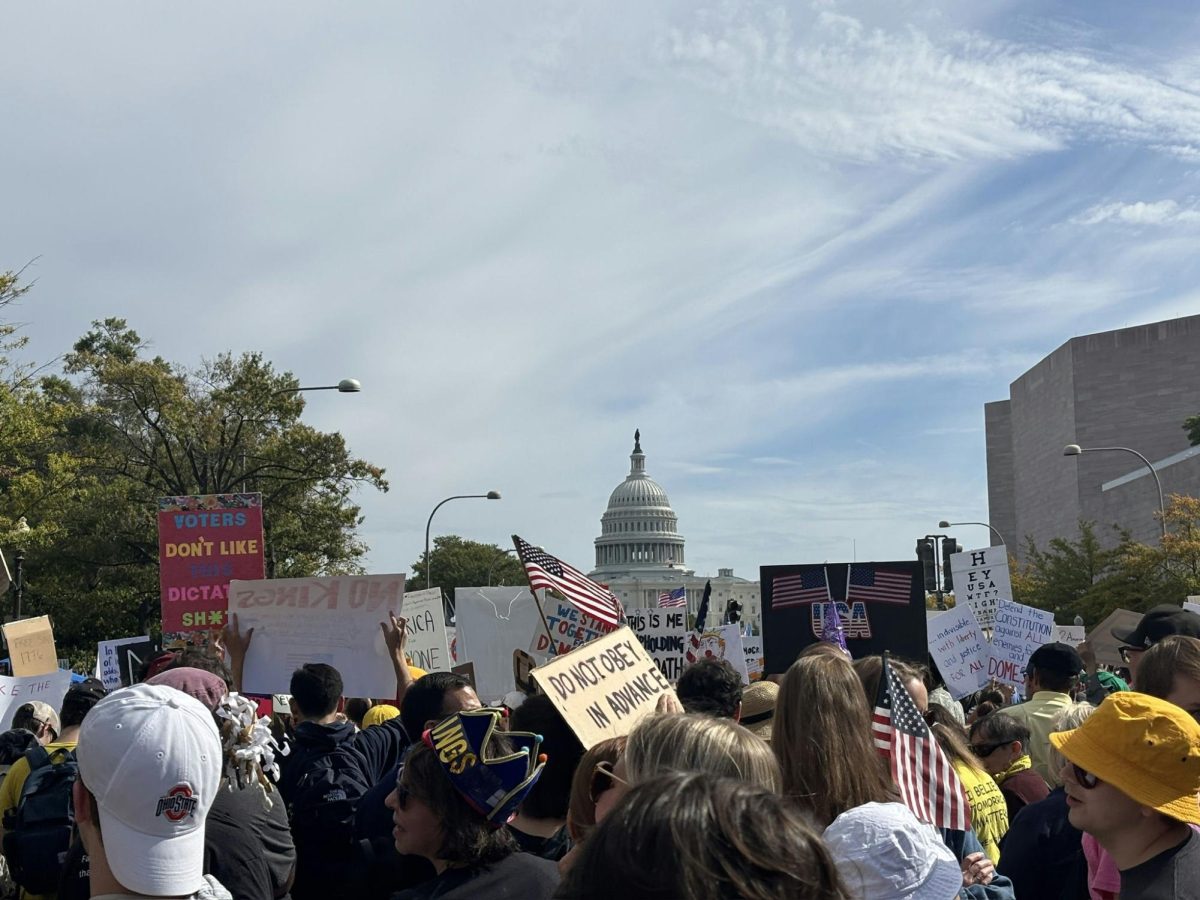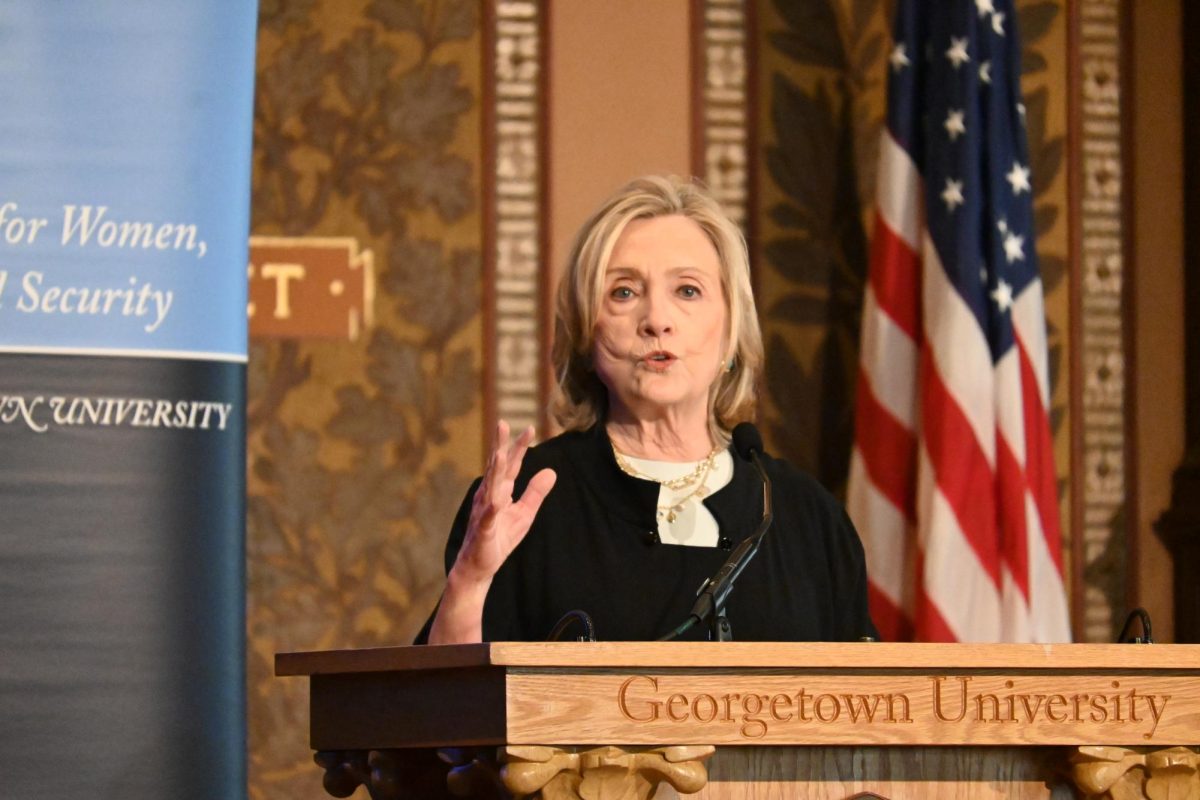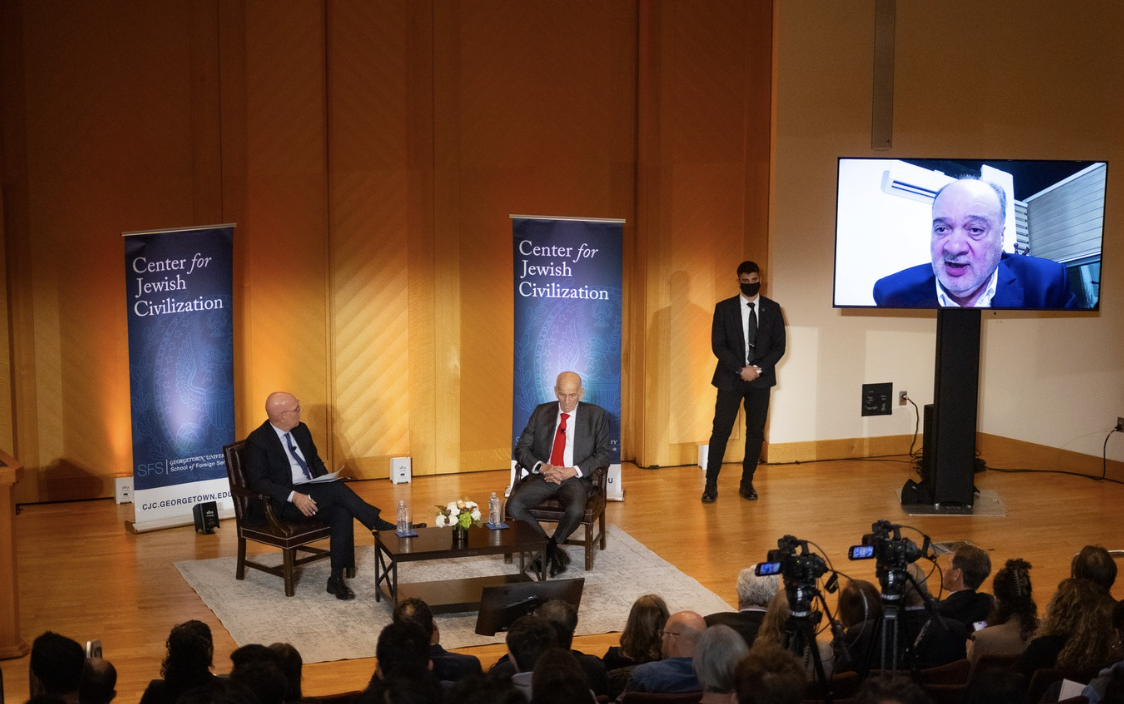Twenty-six first-years are running for four Georgetown University Student Association (GUSA) Senate seats for the Class of 2029, with voting open from Oct. 22 to Oct. 24.
The first-years are campaigning on platforms that advocate for expanding on-campus dining options, improvements to Georgetown University Transportation Shuttle (GUTS) buses and increasing awareness of GUSA’s role on campus.

The candidates are Dima Al-Quzwini (SFS ʼ29), Sam Baghdadchi (CAS ʼ29), Simone Beshtoev (CAS ʼ29), Ryan Chin, William Chun (CAS ʼ29), Iris Cho (SOH ʼ29), Matthew Cosenza (CAS ʼ29), Jacqueline Cavallin (SFS ʼ29), Charlie Cutler (SFS ʼ29), Constantine Filippatos (SFS ʼ29), Marcos Feliciano Madero (SFS ʼ29), Jaxon French (CAS ʼ29), Roye Ganju (SFS ʼ29), Ahursa Ghalebi (SOH ʼ29), Jack Hill (CAS ʼ29), Julian Higgins (CAS ‘29), Michael Hou (CAS ʼ29), Avery Hughes-Davis (CAS ʼ29), Ishaan Jordan (CAS ʼ29), Lucy Kershen (CAS ʼ29), Mustafa Kilicarslan (CAS ʼ29), Angelina Kou (CAS ʼ29), Simon Maxwell (CAS ʼ29), Jacob Nolan (CAS ʼ29), Lucas Robbins (CAS ʼ29) and Joe Romano (CAS ʼ29).
Several candidates said their campaign platforms advocate for expanded dining hours, more food options and a better dining experience.
Kershen said she wants to increase dining hours at Epicurean & Company and expand meal options for students.
“The burden of finding a dining option on the weekend or in the evening shouldn’t fall on students,” Kershen wrote to The Hoya. “That’s exactly why I plan to push for expanding late nights at Epi’s, implementing grab and go options on campus and ensuring that weekend dining options carry food fit for students with dietary restrictions.”
Nolan said if elected, he will advocate for adding cooking and dining supplies to first-year dorm kitchens.
“It’s great that our freshmen dorm common rooms have fully functional kitchens, but there are no cooking and cleaning supplies,” Nolan wrote to The Hoya. “I will call on the university to stock all common room kitchens with cooking and cleaning supplies to promote community within our dorms.”
French said he will work to improve campus dining when the university’s contract with Aramark, a company that provides food services to Georgetown, expires in 2026, adding that he has researched Aramark’s contracts with other universities and believes that Georgetown is getting a worse deal.
“I have the passion and knowledge to help fix this problem,” French wrote to The Hoya. “The Aramark contract expires soon, and with it comes a chance to revitalize our campus dining.”
Robbins said he thinks a lack of dining options on campus is an important concern among first-year students.
“While I plan to address whatever issues students bring forth, working with the administration to implement more dining options and longer hours is something that matters to a vast majority of students and will be the first thing I work on if elected,” Robbins wrote to The Hoya.
Hill said improving dining by expanding hours and food options should be GUSA’s main focus.
“My priority for representing my class is fixing the food,” Hill wrote to The Hoya. “There are so many little things GUSA can achieve that would make the student dining experience just that much better. My other main policies are more food on Flex, Leo’s open till 9:00 p.m. and ending the food desert, all of which GUSA should negotiate with the administration to get done.”
Several senate candidates said they are prioritizing improving dorms and living spaces.
Jordan said upgrading first-year housing options is important.
“I plan to focus on improving first-year housing, as for many students, this is their first time away from home and with so many huge changes, we want them to feel as comfortable as possible through this time in their lives,” Jordan wrote to The Hoya.
Cho said she will work to make dorms cleaner while increasing safety on campus.
“If elected, I’m most passionate about improving dorm living conditions and overall campus safety,” Cho wrote to The Hoya. “This includes addressing persistent issues like pest control, maintenance delays and communication during emergencies.”
Candidates said increasing communication between GUSA and students is an important part of their campaign.
Ghalebi said she will prioritize communicating with classmates to ensure legislation is effective.
“I want to make sure I’m hearing from everyone in every school and dorm so that GUSA’s laws are things the class actually needs, not what we assume they need,” Ghalebi wrote to The Hoya.
Ghalebi said she will use surveys to collect student feedback about utilities and student life.
“Additionally, if elected, I also plan to put out a survey that allows me to take direct input from students on campus that I can consider when writing legislation and going through GUSA meetings,” Ghalebi said.
Robbins said he will work with Beshtoev to create QR codes that allow for student input.
“If elected, we want to make this system permanent: a way for students to report issues and complaints directly to GUSA, so we can ensure that we are advocating for the interests of all students,” Robbins said.


